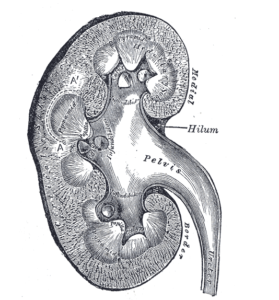Funding Bias in Medical Research
Can you always trust the published medical research? It’s a good question. We rely on data from published studies to make informed health decisions, and yet there are good reasons why that data, at times, can be suspect.

A recent Cochrane review came to the conclusion that there is evidence for industry funding bias (Lundh 2017). Cochrane reviews are some of the most stringent and respected reviews of the medical literature (Moseley 2009). Many prescription drug studies are funded by the pharmaceutical industry, which obviously has a vested interest in finding positive results for their products. This bias appears to influence the research itself. This bias is called funding bias.
A Cochrane review group looked at drug studies and found that with industry funding, the outcomes were positive 1.27 times more often than with non-industry funded drug studies. They also found that industry funded studies were .83 times less likely to have results that matched their conclusions (Lundh 2017). This implies that statistics and results are being manipulated to make a drug look beneficial when it’s not.
When you consider the fact that most Western medicine is focused on drug based interventions, this bias is highly concerning. One of the areas where funding bias and published research has obvious concerns is with statin medications used for preventing heart disease from high cholesterol.
Potential Funding Bias and Statin Drugs
There’s only one large non-industry funded trial on statins for preventing heart disease. The results were not promising. They showed no reduction in all-cause mortality and no reduction in coronary heart disease with statin therapy (ALLHAT 2002). That should give you further pause when you realize that heart disease is the number one cause of death in the U.S. and our primary drug to treat it (statins) had no beneficial effect on total mortality or heart disease.
Other aspects of statin research are also concerning. The industry funded trials that show benefits have never released the raw trial data, something that is typically required to publish in a peer-reviewed journal (Hrynaszkiewicz 2010). For industry funded statin drug trials, all trial data is funneled through a small research group that receives large amounts of funding from the pharmaceutical industry (Demasi 2018). Data on harm from these trials is mostly missing as well, which is an obvious concern (BMJ 2019). Without access to the raw trial data, it’s hard to trust the findings from the industry funded statin research.
Lipitor, one of the most popular statin drugs, is the best-selling drug of all time, having earned over 125 billions dollars (Crain’s 2011). There’s obviously a huge profit incentive to influence the published research.
Conclusion
Funding bias for statin drugs is only one example of a problem that is found throughout the medical literature. And just to be clear, I’m not saying statins have no benefits or that there’s never a situation to consider a statin drug. However, there should be significant concern from the data available and the way the studies have been published; we clearly don’t know the whole story. While we often want to trust the published research, it’s worth looking under the hood and seeing if our trust is warranted.



